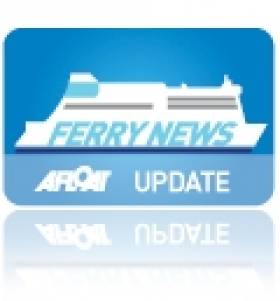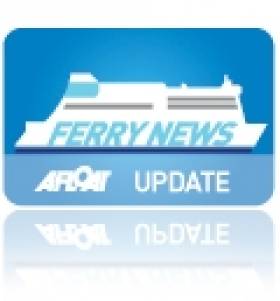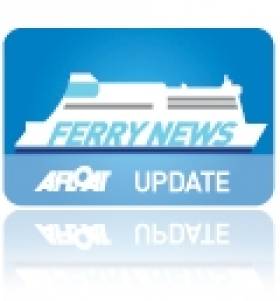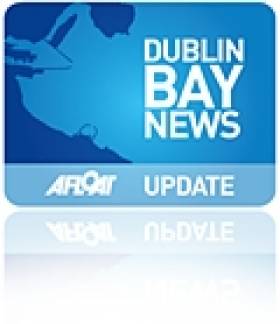Displaying items by tag: St Patrick's Day
Water Safety Organisations Make Joint Appeal Ahead of St Patrick’s Day Bank Holiday Weekend
Ahead of the St Patrick’s Day Bank Holiday weekend, the Irish Coast Guard, RNLI and Water Safety Ireland are issuing a joint water safety appeal, asking people to stay safe when in, near or on the water.
Water temperatures are still cold, meaning cold-water shock and hypothermia are risks that can affect everyone. The three organisations are advising anyone intending to take part in any water-based activity or coastal walks to carefully plan their activity so as to ensure they stay safe.
Coastal walkers are reminded to be alert to the risk posed on cliff and costal walkways by the exceptional wet weather coupled with any erosion over the winter months.
If heading out on the water or participating in costal activity:
- Never mix alcohol or drugs with water activities.
- Always check the weather and tides before venturing out.
- Carry a reliable means of raising the alarm: VHF radio, personal locator beacon (PLB) or fully charged mobile phone.
- Tell someone where you are going and what time you will be back.
- Wear a suitable personal flotation device when engaged in any water-based activity, including shoreline fishing.
- Always check the weather forecast and time of tides.
- Be alert to the risk of becoming isolated by incoming tides.
Gerard O’Flynn, Irish Coast Guard operations manager said: “Always plan your activity and ensure you have a reliable and suitable means of communication. Regardless of activity ensure that somebody knows your plans and expected return time.”
Roger Sweeney, Water Safety Ireland’s deputy chief executive added: “Throughout the festivities, please ensure that you provide your children with constant, uninterrupted supervision when playing near water. Supervise them closely and teach them about water safety at www.teachpaws.ie.
“If you see somebody in trouble in the water: SHOUT – REACH – THROW. SHOUT to calm, encourage and orientate them; REACH with anything that prevents you from entering the water (clothing/stick); and THROW a ring buoy or any floating object to them.”
Linda-Gene Byrne, RNLI water safety lead said: “We are all looking forward to enjoying the longer evenings but it is important to remember when walking to keep well away from the water’s edge. You can reduce the risks by avoiding walking alone or at night and by always making sure you have a means of calling for help.
“If over the upcoming festivities, you or someone you are with has a drink, stay away from the water. Alcohol can lower inhibitions, leading to impaired judgement which means you are more likely to take risks and get into trouble. It also limits muscle ability, making simple movements much harder, slows down reactions making it more difficult to get yourself out of trouble, and if swimming, it numbs the senses making swimming difficult.
“If you do find yourself struggling in the water unexpectedly, Float to Live. To do this, tilt your head back with your ears submerged. Try to relax and breathe normally. You can gently move your hands to help you stay afloat if you need to. Spread your arms and legs out to improve stability – and it's OK if your legs sink, we all float differently. Once your breathing is under control, call for help or swim to safety.”
If you see somebody in trouble on the water or along the coast, or think they are in trouble, dial 112 or use VHF Channel 16 and ask for the coastguard.
Irish Coast Guard, RNLI and Water Safety Ireland Issue Joint Appeal Ahead of St Patrick’s Weekend Festivities
Ahead of St Patrick’s Day festivities around Ireland, the Irish Coast Guard, RNLI and Water Safety Ireland have issued a joint water safety appeal, asking people to stay safe when in, near or on the water.
The organisations are also urging the public to stay away from waterways if consuming alcohol. There are an average of nine drownings in Ireland every month and alcohol is a contributory factor in one third.
A lifejacket that has a correctly fitting crotch strap should always be worn on water and when angling from shore. If engaging in any boating activity it is essential to have a means of communication such as VHF radio or personal locator beacon with a mobile phone as a backup.
Water temperatures are still cold, meaning cold water shock and hypothermia are risks that can affect everyone. To avoid this while swimming, people should acclimatise to the water slowly to get used to the cold and warm up quickly upon exiting the water.
The Irish Coast Guard, RNLI and Water Safety Ireland advise everyone intending to take part in any water-based activity or coastal walks to make sure they check in advance what they should do to keep safe.
If heading out on the water or visiting the coast:
- Never mix alcohol with water activities
- Always check the weather and tides
- Carry a reliable means of raising the alarm (VHF radio or personal locator beacon, with a fully charged mobile phone as backup)
- Tell someone where you are going and what time you will be back
- Wear a suitable personal flotation device when boating or angling
- Watch out for incoming tides to avoid getting cut off
If you are swimming:
- Water temperatures are still cold at this time of the year; consider wearing a wetsuit to stay warm
- Acclimatise slowly
- Wear a bright swimming cap and consider a tow float to increase your visibility
- Never swim alone and always ensure that your activity is being monitored by a colleague
Irish Coast Guard operations manager Micheal O’Toole says: “St Patrick’s weekend is a traditional start to the holiday season and with extended daylight people will be keen to get out and about. Always carry a means of communication. If engaging in coastal walks, only use routes with which you are familiar or routes that are well marked and in regular use. Be attentive to erosion or changes that may have occurred over the winter period.“”
RNLI head of region Anna Classon adds: “As the evenings get longer, the water temperature is at its coldest at this time of year. Cold water shock is still a risk and we ask people to take care when entering and exiting the water. Acclimatise slowly and never swim alone.”
Water Safety Ireland’s deputy chief executive Roger Sweeney cautions that people should stay away from water if consuming alcohol.
“At this time of year many people will enjoy family trips to waterways nationwide. However, it is important people remember to supervise children closely and not to drink alcohol when supervising children near water,” he says. “Alcohol is a contributory factor in over 30% of drowning incidents and an individual’s judgement and reaction times can be significantly impaired.”
If you see somebody in trouble on the water or along the coast, or think they are in trouble, dial 999 or 112 or use VHF Channel 16 and ask for the coastguard.
#Visitors - A French naval vessel, a UK based cruiseship and a local excursion boat are in Dublin Port to celebrate St. Patrick’s Day, writes Jehan Ashmore.
The French Navy are represented in the capital with the presence of the small offshore patrol vessel, Cormoran. At just shy of 50m long the craft is on a courtesy call during the festivities having berthed at Sir John Rogersons Quay. The 390 gross tonnage vessel is on a five-day visit.
Cormoran normally patrols EEZ waters off western France, had been the Guardship for the La Solitaire du Figaro Yacht Race that called to Dun Laoghaire Harbour in recent years. Accompanying the French visitor on the Liffey is one of the Irish Navy's smallest units, the coastal patrol vessel, L.E. Orla.
Sister of the Peacock class, L.E. Ciara had also berthed here last week during the call of foreign naval visitor, BNS Castor a Ready Duty Ship of the Belgium Navy. More recently HMS Westminster, a Duke class Type 23 frigate also visited the port but took a downriver berth along Ocean Pier.
Also making a visit to Dublin this St. Patrick’s Day with up to 449 passengers is Saga Pearl II which is on cruise having departed Dover. The call of the small Saga Cruises includes an overnight stay in the capital to give cruise-goers more time to enjoy the attractions and Irish hospitality.
The arrival of Saga Pearl II follows the first cruise visitor of 2017 which came in the form of Fred Olsen's Boudicca. The larger 880 passenger capacity cruiseship made a call within the first week of January, however the cruise season proper gets underway next month in late April.
As thousands of Dubliners and visitors also from overseas throng the capital’s thoroughfare for today's St. Patrick’s Day Parade, there are those taking the sights of the capital from offshore. This is been carried out by Dublin Bay Cruises excursion boat, St. Bridget.
The former Aran Islands ferry had undergone work at Howth Boatyard in advance of seasonal cruises. Up until now the 100 assenger boat had been wintering in Dublin’s Grand Canal Dock Basin from where she departed in recent days.
St. Bridget operates cruises from Sir John Rogersons Quay. Almost facing opposite on the far bank is based replica 19th century museum famine-emigrant tallship Jeanie Johnston. The barque this week finally returned to its home-berth in the city-centre at Custom House Quay having undergone maintenance dry-docking.
Guided tours that tell the tales of Irish emigration during the famine to North America are brought to life on board the tallship.
Sail to Ireland for St. Patrick’s Day and for Only €1
#SailStPatrick - A month to St. Patrick's Day and Celtic Link Ferries are offering a special €1 France-Ireland deal for the sailing on Sunday 16th March.
Passengers will have the opportunity to travel on board Celtic Horizon between Cherbourg-Rosslare with any tourist vehicle (car, van [up to 6.5m long and 2.5m high], motorhome, motorcycle, caravan, minibus or trailer) for as little as €1.
The promotion also includes everybody that is in the vehicle on the sailing that departs Cherbourg at 16.00hrs and arrives on the morning of St. Patrick's Day at 09.00hrs.
"Its simply an effort to get as many people to come to Ireland for St. Patrick's Day as possible" said a company spokesperson. We have more direct crossings than anybody else and with that we want as many people to use it as possible".
Ferries Get Red Noses & Turn All Green!... for Weekend Events
#FerryColourful – This weekend saw a Stena Line ferry or two getting big Red Noses and turning Green –well almost!...to mark the UK's Red Nose Day and Ireland's St. Patrick's Day.
Red Nose Day which celebrated its 25th anniversary this year was held last Friday and despite the economic climate, the charity fundraiser appeal raised a staggering £75m.
On board Stena ferries a host of fundraising activities took place including a range of specially created red nose muffins, sales of which along with other activities will go to Comic Relief.
Around the World the iconic images including the Pyramids of Giza and Leaning Tower of Pisa are to turn green this weekend for St Patrick's Day festivities.
Closer to home, Stena Line didn't want to turn green with envy so they turned out one of their Belfast-Birkenhead ferries to a shade of green instead... albeit with some imagination!
The Gathering Looms Ever Closer as Celtic Horizon Heads for St. Patrick’s Festivities
#GatheringVoyage –Passengers today on board Celtic Horizon which is due to make a lunchtime arrival in Rosslare Harbour are taking advantage of a special celebratory 'Gathering' sailing, writes Jehan Ashmore.
As previously reported, Celtic Link Ferries had been promoting a €1 euro motorist fare on this particular crossing which departed Cherbourg yesterday in advance of St. Patrick's Day festivities held across the nation in this year of The Gathering.
In addition to Irish and continental passengers, there are representatives from the tourism sector travelling on this Gathering sailing.
As the Celtic Horizon heads towards the Tuskar Rock Lighthouse, there will no doubt be an on board atmosphere of excitement as the Emerald Isle looms increasingly closer.
Celtic Horizon is the newest and fastest vessel operating on the French-Irish route and among the facilities are the aptly named Tuskar Lounge, Rosslare Bar and Cherbourg Café.
Harbour2Harbour Dublin Bay Walk Coming Soon
#DUBLIN BAY NEWS - The annual St Patrick's Day Harbour2Harbour Walk in aid of mental health charity Aware is just a few weeks away.
The 16.2 mile walk around Dublin Bay begins at 10.30am on Saturday 17 March, taking around five hours to complete, and it's your choice whether you begin at Howth Harbour and walk to Dun Laoghaire Harbour or vice versa.
Organisers describe the event as "a great day out for family, friends and individuals, all of whom get a great sense of achievement and a great view of Dublin Bay."
Of course the main aim of the day is to raise funds for Aware, and once registered to take part you will receive a fundraising pack containing letters, information, maps and sponsorship cards. You can also set up your own fundraising page on MyCharity.ie.
The registration fee is €15 per individual or €25 for a group of 2 (children under 16 are free). Advance online registration is now available at the Aware website HERE. Late registration will be available on the morning of the walk itself.
Volunteers are also required to help with late registration on the morning of the walk and act as stewards at various points along the route. If you can help please call 01 661 7211 or e-mail [email protected].
More information about the day can be found at Aware's Harbour2Harbour webpage HERE.

































































